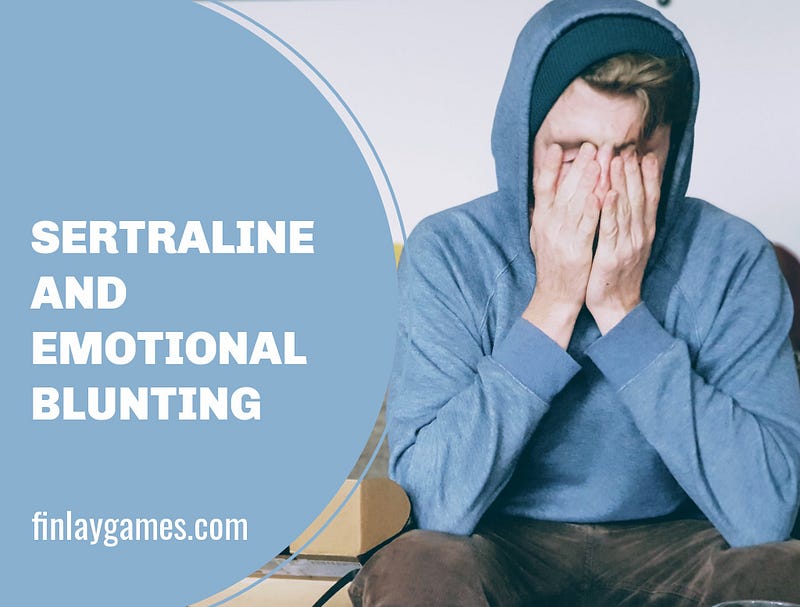Why Can’t I Cry Anymore? Understanding Emotional Shutdown in Depression
As a seasoned mental health expert with extensive experience in treating depression, I’ve helped countless individuals grappling with the frustrating question: “Why can’t I cry anymore?” This emotional shutdown, often manifesting as emotional blunting or numbness, is a common yet overlooked symptom of depression. It can stem from treatment-resistant depression, side effects of antidepressants, or long-term trauma, leaving you feeling detached and unable to express emotions through tears. In this post, I’ll break down the science behind “can’t cry depression” and provide practical insights to help you reconnect with your feelings.

Emotional Blunting: Antidepressants, Effects, Help
What Is Emotional Blunting?
Emotional blunting refers to a dulled or flattened emotional response, where both positive and negative feelings are muted. You might feel numb, empty, or detached, making it hard to experience joy, sadness, or even cry. This is not just “feeling flat” — it’s a protective mechanism or side effect that impacts quality of life and relationships. In my practice, patients describe it as living behind a glass wall, observing emotions but not feeling them.
Common symptoms include:
- Inability to cry even when sad
- Reduced empathy or emotional reactions
- Loss of interest in activities
If you’re experiencing emotional blunting, it could be exacerbating your depression.

Emotional Numbness: Symptoms, Causes, and Treatment
Why Can’t I Cry in Depression?
Crying is a natural release for emotional buildup, but in depression, emotional shutdown can block this response. This “can’t cry depression” phenomenon often ties to emotional blunting, where the brain’s emotional processing centers are dampened. Scientifically, depression alters neurotransmitters like serotonin and dopamine, reducing emotional intensity and tear production. It’s a form of dissociation, especially in severe cases, acting as a defense against overwhelming pain.
The Link to Antidepressants
Many antidepressants, particularly SSRIs (selective serotonin reuptake inhibitors), can cause emotional blunting as a side effect. Research shows that around half of users experience this, feeling emotionally “numb” or detached. While these medications help with sadness, they can also blunt positive emotions and inhibit crying by stabilizing serotonin levels too rigidly. In my expertise, switching to alternatives like vortioxetine or adjusting doses can alleviate this.

Emotional Numbness | Why I Stopped Sertraline — Finlay Games
For related mental health challenges, explore our article on Trapped in My Own Head: How Overthinking and Isolation Feed Depression.
The Role of Long-Term Trauma
Long-term trauma, such as childhood abuse or chronic stress, can lead to emotional shutdown as a coping strategy. The brain dissociates to protect itself, resulting in emotional blunting and inability to cry. This is common in PTSD overlapping with depression, where hypervigilance suppresses emotional expression. Therapies like EMDR can help reprocess trauma and restore emotional flow.
Treatment-Resistant Depression and Emotional Shutdown
Treatment-resistant depression occurs when at least two antidepressants fail to improve symptoms. Emotional blunting is often more pronounced here, contributing to a deeper shutdown. Scientifically, it may involve persistent neuroinflammation or genetic factors hindering recovery. Advanced treatments like ketamine therapy or TMS (transcranial magnetic stimulation) show promise in breaking this cycle.

Why Can’t I Cry Even Though I’m Sad?
Check out our post on Why Do I Feel Unloved Even When People Care About Me? for more on emotional disconnects.
How to Address Emotional Shutdown
Regaining the ability to cry and feel involves targeted steps:
- Consult a professional to adjust medications if antidepressants are the cause.
- Engage in therapy like CBT or EMDR to process trauma.
- Practice mindfulness or journaling to reconnect with emotions.
- Consider adjunct treatments for treatment-resistant depression, such as ketamine.
- Build healthy routines — exercise and social support can help.
For habit-building tips, read Small Daily Habits That Transformed My Mental Health.
FAQs About Can’t Cry Depression and Emotional Blunting
What causes emotional blunting in depression?
It’s often due to antidepressants like SSRIs, trauma, or the depression itself dampening emotional responses.
Why can’t I cry anymore even when I’m sad?
Emotional shutdown from depression or medications blocks tear production and emotional release.
Is emotional blunting a sign of treatment-resistant depression?
Yes, it can be more common in cases where standard treatments don’t fully resolve symptoms.
Can long-term trauma cause inability to cry?
Absolutely, trauma leads to dissociation and numbness as a defense mechanism.
When should I seek help for emotional shutdown?
If it persists and affects daily life, consult a mental health professional immediately.
Disclaimer
This blog post is for informational purposes only and is not a substitute for professional medical advice, diagnosis, or treatment. Always consult a qualified health provider for any mental health concerns. If in crisis, contact emergency services or a hotline immediately. External links are for convenience and do not imply endorsement.
Comments
Post a Comment
Thanks for your response,May God bless you